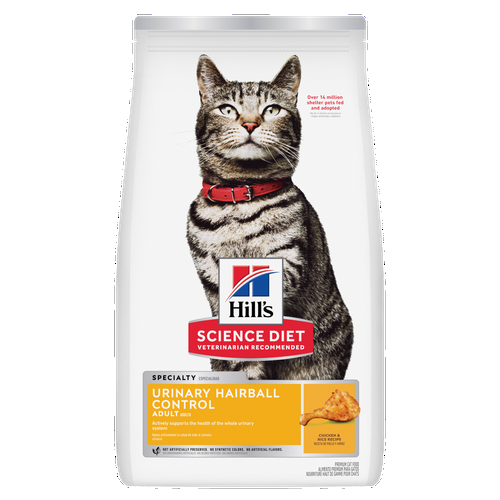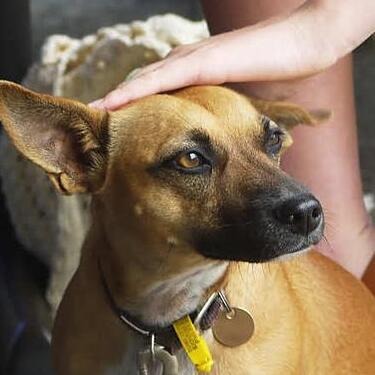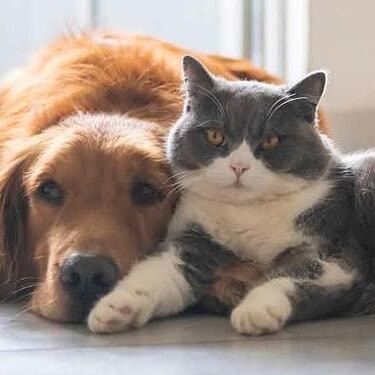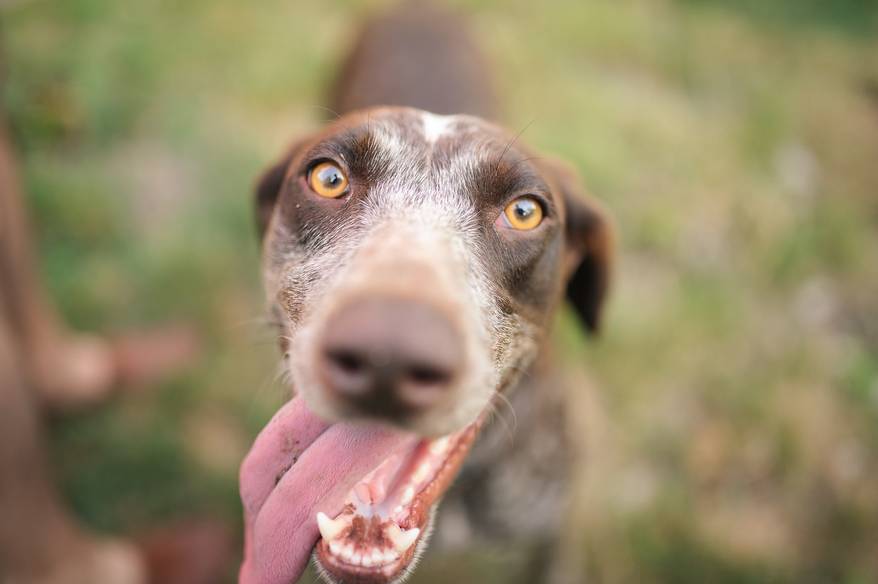
-
Find the right food for your petTake this quiz to see which food may be the best for your furry friend.Find the right food for your petTake this quiz to see which food may be the best for your furry friend.Featured products
 Hill's Science Diet Adult Oral Care Chicken, Brown Rice & Barley Recipe Dog Food
Hill's Science Diet Adult Oral Care Chicken, Brown Rice & Barley Recipe Dog FoodClinically proven kibble technology to reduce plaque & tartar build-up
Shop Now Adult 7+ Small & Mini Chicken & Brown Rice Recipe Dog Food
Adult 7+ Small & Mini Chicken & Brown Rice Recipe Dog FoodFor the unique nutritional needs of mature Small & Mini dogs
Shop Now Adult Small & Mini Lamb Meal & Brown Rice Recipe Dog Food
Adult Small & Mini Lamb Meal & Brown Rice Recipe Dog FoodFor the faster metabolism of Small & Mini dogs
Shop NowFeatured products Adult Urinary Hairball Control Chicken & Rice Recipe Cat Food
Adult Urinary Hairball Control Chicken & Rice Recipe Cat FoodActively supports the health of the whole urinary system
Shop Now Adult Indoor Chicken Recipe Cat Food
Adult Indoor Chicken Recipe Cat FoodSupports energy level and beautiful fur in indoor cats
Shop Now Hill's Science Diet Adult Sensitive Stomach & Skin Dog Food
Hill's Science Diet Adult Sensitive Stomach & Skin Dog FoodHighly digestible recipe, gentle on stomachs. Nourishes skin & promotes a lustrous coat
Shop Now -
Featured articles
 My Pet Ate a Lizard — What Should I Do?
My Pet Ate a Lizard — What Should I Do?Learn what to do if your pet eats a lizard, including whether they can be toxic and symptoms to keep an eye on when they've swallowed one.
Read More 15 Pet-Friendly Cities Ideal for a US Road Trip
15 Pet-Friendly Cities Ideal for a US Road TripCheck out our list of pet-friendly U.S. cities that are excellent travel options, offering off-leash dog parks and pet-friendly restaurants & hotels.
Read More Easy DIY Dog & Cat Toys: Nine of Our Favorites
Easy DIY Dog & Cat Toys: Nine of Our FavoritesBrowse this comprehensive guide for several of our favorite DIY dog and cat toys that are sure to put a little pep in your pet's step.
Read More -


Dog bad breath isn't one of those things that just comes with the territory of owning a dog. Constant halitosis, or bad breath, in dogs can be a sign of minor or major health problems. By understanding the causes of bad breath, you can tame the odor and enjoy those puppy kisses a little bit more.
More Than Just Morning Breath
Bad breath is usually caused by bacteria in the mouth, so all mammals can have bad breath from time to time. Humans wake up, brush their teeth, take a swig of mouthwash, and in most cases, mask the bad breath for the rest of the day. However, most dog owners don't brush their dog's teeth every morning, and when your pup's breath starts to knock you out, you might wonder what course of action you need to take.

Frequent or extreme dog bad breath may be a sign of health issues, so the first thing you should do when you smell very strong odors from your dog's mouth is to take him to the vet and let them examine his teeth. If they notice major tartar buildup, red and irritated gums or excessive drooling that could be a sign of a larger dental diseases, like gingivitis. Systemic disease, like diabetes, liver disease or kidney disease, could be the culprit, notes the American Kennel Club.
While at the vet's office, you may want to discuss the types of treats and food you are giving your dog. Although some toys and treats tout dental health benefits, not all breeds are the same. Some breeds may actually develop worse breath or excessive drooling from certain types of treats and chew toys. Rawhide bones are a perfect example of a treat that many dog owners use without realizing that they may be using the wrong size or giving their dog this treat too often, explains the ASPCA. Only your dog's vet truly knows what dental treats, chew toys, and food are best for your dog's mouth. There are plenty of dog foods out there for everyday oral care that are specially formulated to help clean your dog's teeth as he chews. Sometimes when the issue is caused by some sort of oral disease, your veterinarian might need to prescribe a therapeutic dog food. These types of foods may help improve his overall breath and his oral health.


Tasty Tips
After the Dental Diagnosis
Once your vet determines the cause of your furry friend's bad breath and suggests a treatment, it's important to follow package instructions and the ASPCA's suggestions. If your dog requires getting his teeth brushed, be sure to use that teeth-brushing time to bond, rather than approaching it with frustration or making your dog anxious. Never use human toothpaste to brush his teeth. There are plenty of dog-approved oral care kits to choose from.
Finally, if your dog doesn't have dental disease and just has a flare up of bad breath here and there, you may want to pay closer attention to what he's eating. Certain foods or treats you give him could be upsetting his digestive tract, which would explain the awful smells in his mouth. Also, don't forget that dogs are curious creatures with fewer taste buds than humans, so generally strong smelling items can lure them in for a taste, including dead animals, trash and even their own poop.
Not unlike humans, a nice deep clean can benefit your dog. In these cases, veterinarians can clean his teeth, but this will require putting your dog under local anesthetic. Talk to your veterinarian and get their thoughts to see if your pup's oral health would benefit from this type of deep cleaning.
Proper care and grooming of your dog inside and out is important. By creating and maintaining a healthy meal plan and dental routine, you will keep your pup feeling and smelling better, so you can enjoy more cuddles and hugs without feeling like you're going to pass out from his bad breath.


Chrissie Klinger is an educator, writer and mother of two children, three dogs and three cats. Her dog Jake loves sitting on her lap every chance he gets! She enjoys living an active and eco-friendly lifestyle in rural Pennsylvania.
Related products

For the faster metabolism of Small & Mini dogs

Improves everyday ability to get up & go

Clinically proven kibble technology to reduce plaque & tartar build-up

For the unique nutritional needs of mature Small & Mini dogs
Related articles

Discover how the field of dog science is giving us more and more insights into the inner workings of our furry best friends.

Understand the role that Omega-6 and Omega-3 fatty acids play in your dog's overall health, and how you can ensure they are getting enough.

Your dog's coat and skin are a big part of your dog's overall health. Ensure you keep your dog's coat healthy, by following these simple tips.

Learn basic steps & precautions for treating a cut on your dog, including what you can put on the cut, and when you should take them to the vet.

Put your dog on a diet without them knowing
Our low calorie formula helps you control your dog's weight. It's packed with high-quality protein for building lean muscles, and made with purposeful ingredients for a flavorful, nutritious meal. Clinically proven antioxidants, Vitamin C+E, help promote a healthy immune system.
Put your dog on a diet without them knowing
Our low calorie formula helps you control your dog's weight. It's packed with high-quality protein for building lean muscles, and made with purposeful ingredients for a flavorful, nutritious meal. Clinically proven antioxidants, Vitamin C+E, help promote a healthy immune system.

